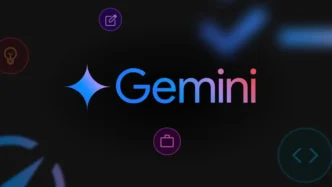Meta has just unveiled a robust suite of Llama AI security tools aimed at bolstering AI safety and cybersecurity. The announcement highlights Meta’s growing commitment to helping both AI developers and defenders navigate the complex risks of generative AI.
Next-Gen Protection with Llama Guard 4 and LlamaFirewall
The standout in Meta’s security arsenal is Llama Guard 4, a significant upgrade to the company’s existing safety filter. Unlike previous iterations, this new version is multimodal—capable of analyzing both text and images to enforce safety rules. With visual content playing a larger role in AI apps, this shift marks an essential evolution.
Llama Guard 4 isn’t a standalone tool. It’s being integrated directly into Meta’s new Llama API, now available in a limited preview. This means developers using the API will have a built-in, powerful layer of safety and compliance across various media formats.
To orchestrate all these tools, Meta introduced LlamaFirewall. Think of it as the AI equivalent of a central security dashboard. LlamaFirewall manages multiple safety models and integrates with Meta’s other tools. It’s designed to detect and block high-risk activities, such as:
- Prompt injection attacks
- Harmful or unsafe code generation
- Abnormal AI plug-in behavior
By uniting these elements under one framework, LlamaFirewall acts as a proactive shield for AI systems.
Faster, Lighter Defense with Prompt Guard 2
Meta has also improved its Prompt Guard tool, with two new models under the Prompt Guard 2 banner. The flagship version, Prompt Guard 2 (86M), excels at identifying prompt injections and jailbreak attempts—common tactics used to trick AI models into harmful behavior.
For those needing quicker results and reduced costs, Prompt Guard 2 22M offers a lightweight alternative. According to Meta, it delivers nearly equivalent detection while slashing latency and compute requirements by up to 75%. This makes it ideal for startups and smaller projects that still demand serious protection.
The Llama updates aren’t just for AI developers—they’re also aimed at cybersecurity professionals. Meta has expanded its CyberSec Eval 4 benchmark suite, which helps evaluate how well AI handles security-related tasks.
Two new tools stand out:
- CyberSOC Eval: Built with input from CrowdStrike, this tool assesses AI in the context of real-world Security Operation Centers (SOCs). It’s designed to test how well models can detect and respond to live threats.
- AutoPatchBench: Aimed at developers, this benchmark checks how effectively AI models can identify and patch security vulnerabilities in code before they’re exploited.
These updates help bridge the gap between theoretical AI performance and practical cybersecurity use cases.
Llama Defenders Program and Internal Security Tools
To make these tools more accessible, Meta is launching the Llama Defenders Program. This initiative gives select partners early or exclusive access to AI security tools—some open-source, others proprietary.
Among the new offerings is Meta’s internal Automated Sensitive Document Classification Tool. It’s used to label internal documents with security tags, preventing confidential data from being mistakenly exposed to AI systems. This is especially relevant for companies adopting retrieval-augmented generation (RAG) models, where leaking internal data is a real risk.
Meta is also tackling a growing problem: fake audio scams. As AI-generated voices become more convincing, fraudsters are using them for phishing and impersonation. Meta’s new solutions include:
- Llama Generated Audio Detector
- Llama Audio Watermark Detector
These tools help organizations identify AI-generated audio content. Major companies like ZenDesk, Bell Canada, and AT&T are already testing them in real-world scenarios.
Meta also teased Private Processing, a privacy-first approach to AI on messaging platforms like WhatsApp. The goal is to let AI assist users—such as summarizing messages or drafting responses—without reading message content. Meta says this system is built with end-to-end privacy and plans to publish its threat model publicly.
This transparency invites security researchers to test and refine the system before it launches, signaling a strong commitment to user privacy.













